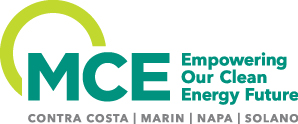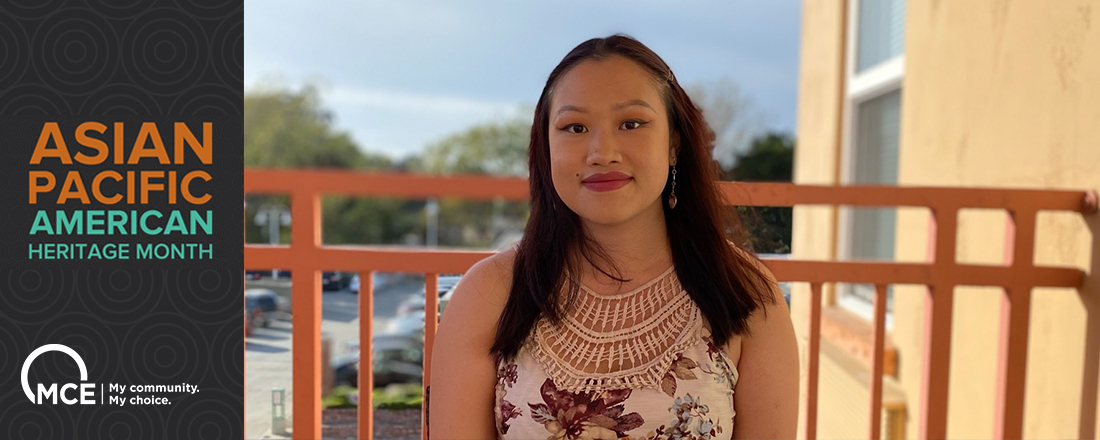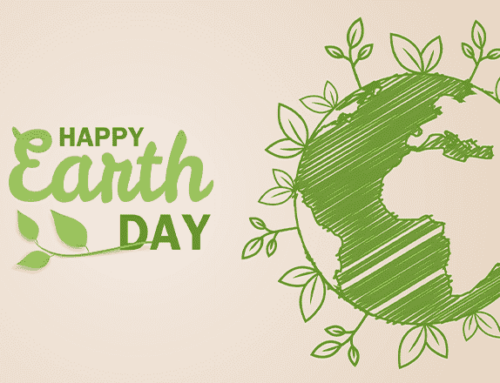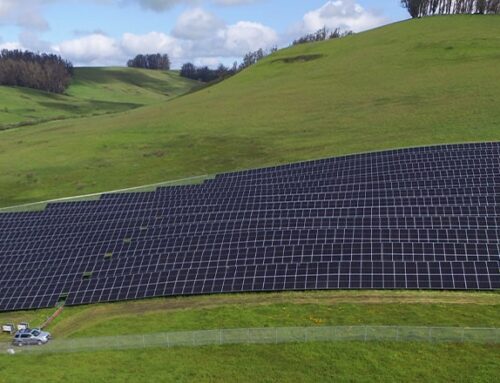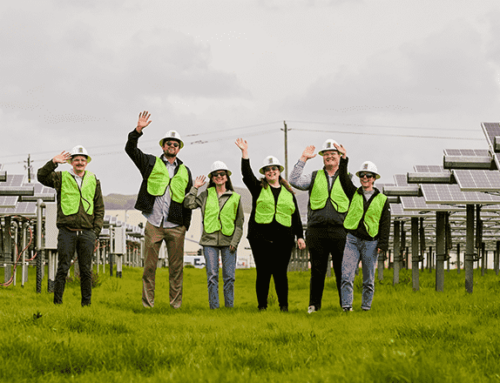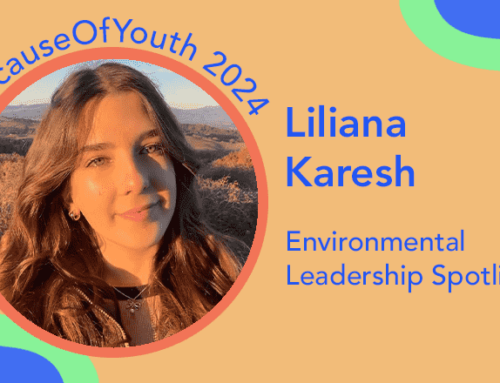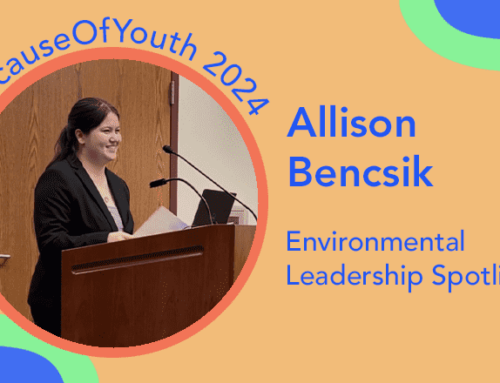In honor of Asian American Pacific Islander Heritage Month, MCE is proud to highlight local environmentalist Katherine Lee. Katherine became involved in the local environmental justice movement at an early age. She is now the Richmond Youth Organizer for the Asian Pacific Environmental Network (APEN) where she is leading the development of a youth-led resilience hub.
Can you tell me a bit about yourself and your background?
I come from a large family of Mien refugees originally from Laos. My mother’s family immigrated to California in 1982, and I was born and raised in Richmond where I graduated high school in 2016. I have always appreciated being part of the small but close-knit Laotian refugee community, and growing up in such a diverse city. Of the many jobs I worked growing up, what always felt the most rewarding was my volunteer work and civic engagement with APEN and other grassroots organizations. Around a year and a half ago, I was honored to join APEN full time as the Richmond Youth Organizer.
Why did you get involved in the environmental movement?
I was exposed to the environmental justice movement when I was in fifth grade. My aunt was a community organizer with APEN, and I would tag along with her to help make signs for rallies, volunteer at fundraising events, and attend member meetings. At that age, I thought volunteering for APEN just meant helping out with small office tasks, but I soon found out there’s so much more meaning behind it. I continued my work with APEN throughout middle school and high school. My passion for environmental justice really grew as I participated in APEN’s civic engagement work—that’s when I knew I wanted organizing to be my career.
How does your background influence your work?
I grew up in low-income public housing in Richmond around other people of color. I noticed from an early age that my school didn’t have access to the same funding and resources as the schools in other neighborhoods. Schools in more privileged communities had new books and more opportunities for after-school resources and recreational activities. There were barely any parks near me, and the ones that existed weren’t clean. Our groceries stores and shopping plazas were also really run down. Seeing these inequities was part of why I felt it important to pursue this work. Being part of a refugee immigrant family is also a huge part of my identity, and I try to apply that experience to my work as much as I can.
What do you do as the Richmond Youth Organizer for APEN?
My main priority is organizing Pan-Asian youth and advocating for a just transition. I help young people build their outreach, organizing skills, and other leadership qualities like public speaking and decision making. I also assist in community organizing to advocate for housing justice, clean air, and decommissioning of refineries. Currently I am working with a group of eight youth leaders on a variety of projects, the main project being our youth-led resilience hub.
What is the youth-led resilience hub project?
A resilience hub is a center where people from the community can find support before, during, and after climate disasters. Climate change is happening now, so we need to come together and prepare instead of scrambling to find resources and solutions after disasters happen. Our resilience hub project is in collaboration with the RYSE Center, which has been in Richmond since 2008. They offer a variety of programs, including youth organizing, college and career counseling, arts, and culture.
Resilience hubs change depending on the needs of the community. For example, the Richmond community is particularly impacted by the Chevron refinery and wildfire season. Our resilience hub will need resources such as air purifiers, flashlights, and power generators, but those resources might look different at a resilience hub in a different location.
Why do you think it’s important to engage with youth organizers?
Young people don’t realize that they can use their voices to shape their own future, and that needs to change. Climate change is an ongoing problem and these solutions take time, so we need to prepare these young folks. People often think that youth don’t know better, but they can be super insightful when it comes to these intersectional environmental issues, and they inspire me every time I have conversations about it with them. Young people can constantly give us new feedback about how society is changing and what needs to be talked about in the environmental justice movement.
What would you say to a young person who wants to make a difference in their community?
I would encourage them to explore different local community organizations. There are lots of resources available to get involved. It’s super important to practice your outreach and organizing skills from an early age. Don’t be afraid to speak up for yourself or speak about your own experiences when asked about environmental and social justice issues.
